Poultry farming in Switzerland is a well-established industry that provides high-quality chicken, turkey, and duck meat to the Swiss market. The poultry sector has experienced significant growth due to greater consumer demand for poultry products. There are over 1,200 poultry farms in Switzerland, with a total production of about 1.3 million tonnes of poultry meat per year.
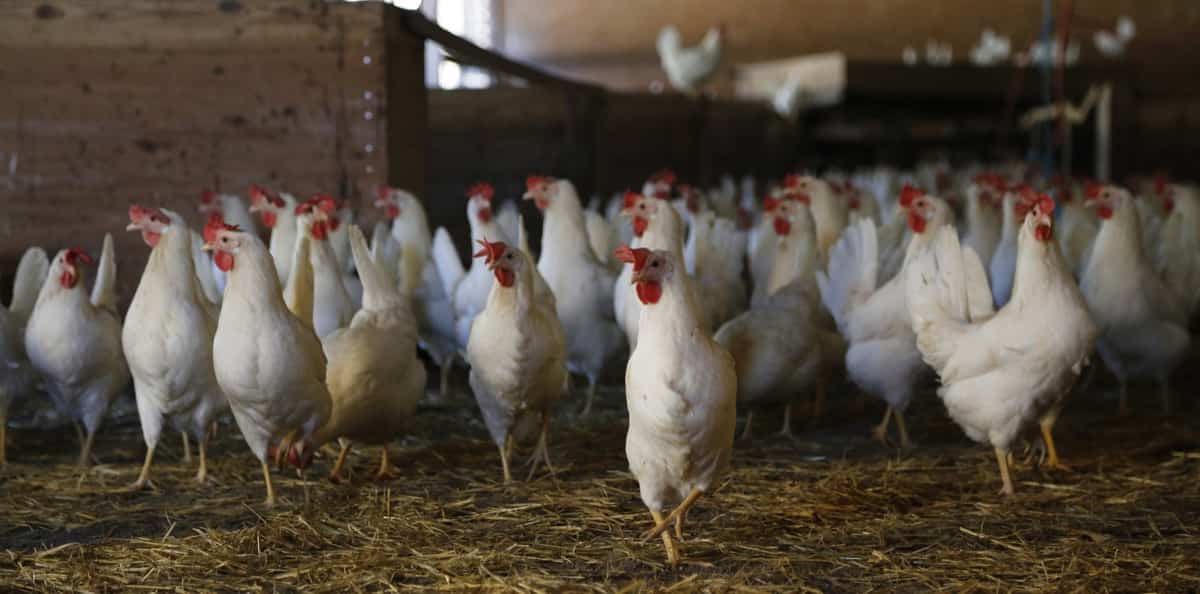
How to start poultry farming in Switzerland
What is poultry farming in Switzerland?
- Poultry farming in Switzerland is a highly industrialized process involving raising chickens, ducks, geese, or turkeys for meat or egg production. Swiss poultry farms are typically large-scale operations that use modern housing and husbandry systems.
- Most Swiss poultry farms are located in the canton of Zurich, where over 80% of the country’s poultry production occurs. Other important poultry farming regions include the cantons of Bern and Basel-Land.
- Swiss poultry farmers produce a wide variety of chicken, duck, goose, and turkey products, including whole birds, cuts of meat, eggs, and feathers. Poultry farming is an important part of Switzerland’s agriculture sector.
Steps to start a poultry business in Switzerland
1. Do your research: The first step to starting any business is to do your research. This is especially important for a poultry farming business, as many factors must be considered before getting started. For example, each type of bird has different housing requirements and feed needs, so selecting the right breed for your farm is important.
2. Develop a business plan: Once you’ve decided which type of poultry you’d like to raise, it’s time to develop a business plan. This will help you determine the start-up costs for your farm, as well as how much money you’ll need to reinvest each year to keep your business running.
3. Find the perfect location: One of the most important factors in starting a successful poultry farm is finding the perfect location. You’ll need enough land for the housing and pasture space required for your chosen type of poultry. The land should also have access to water and electricity.
4. Build or buy chicken coops: Chicken coops (or houses) are where your birds will live. They need to be big enough for the birds to move around comfortably, with enough ventilation to keep them healthy. You can either build your chicken coops or buy prefabricated ones. Build or purchase the necessary infrastructure for your poultry farms, such as chicken coops, feeders, and waterers.
In case you missed it: How to Start a Poultry Farming in Nigeria: Business Plan, Breeds, Cost, Profit, Loan, Subsidy, and Management
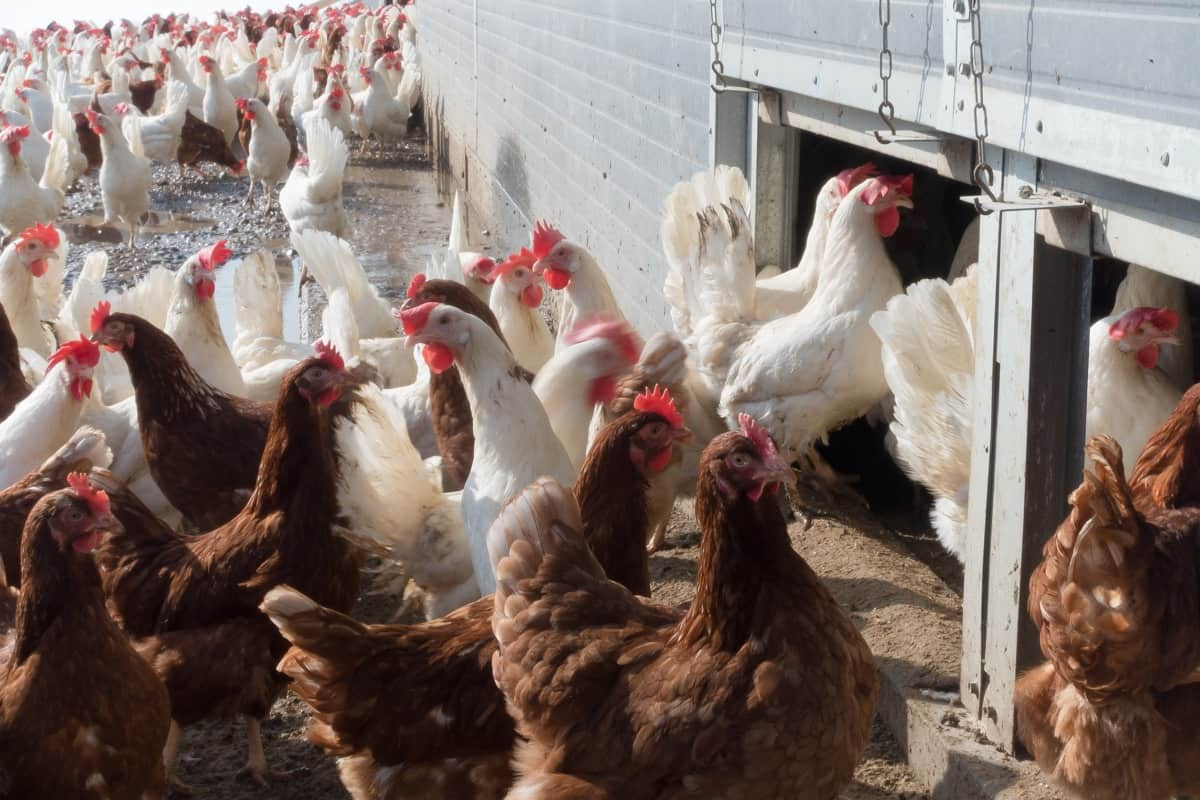
5. Obtain the necessary permits and licenses: Get the necessary permits and licenses from the Swiss government. You will need to obtain a permit from the cantonal agricultural office to operate a poultry farm in Switzerland. Ensure you are familiar with all the regulations and requirements before applying for a permit.
6. Stock your farm with birds and raise them according to your business plan: Purchase your flock of birds from a reputable breeder or hatchery. Make sure to get healthy birds that are well-suited for the Swiss climate. Raise your birds according to best practices and provide them with quality food and care. Regularly check them for signs of disease and parasites, and treat them promptly if needed.
7. Marketing: Market your poultry products to customers in your area.
Poultry farm set-up cost in Switzerland
The set-up cost for a poultry farm in Switzerland can change depending on the size and scale of the operation. However, some general start-up costs are common to most poultry farms in Switzerland. The average set-up cost for a poultry farm in Switzerland is between 10,000 and 12,000 CHF. This cost includes purchasing chicks, housing, equipment, and supplies. The set-up cost will change depending on the size and type of poultry farm you wish to establish.
Poultry production methods in Switzerland
Poultry farming in Switzerland is a significant agricultural sector, with over 1.2 million chickens being kept for egg and meat production. Most of these are kept in intensive systems, with around 70% laying hens and 40% broilers being raised this way. There are several reasons for the popularity of intensive poultry farming in Switzerland.
The main reason is that it is a very efficient way to produce eggs and meat, with a high output per bird. This is especially important in a country like Switzerland, where land is at a premium. Another reason for the popularity of intensive poultry farming is that it allows farmers to keep their costs down. This is because large numbers of birds can be kept in relatively small spaces, so fewer staff are needed to care for them.
Is poultry farming profitable in Switzerland
- Poultry farming can be a very profitable business in Switzerland. However, there are different factors to consider when determining if poultry farming is right for you, including the type of poultry you wish to raise, the market for your product, and the cost of production. Nevertheless, with careful planning and execution, you can build a successful business that provides healthy food for Swiss consumers and generates a good income for yourself and your family.
- Swiss poultry farmers must follow strict regulations regarding the care and housing of their chickens. These regulations cover everything from food and water requirements to exercise and health care. In addition, poultry farmers must also adhere to strict biosecurity measures to prevent the spreading of disease among their chickens.
In case you missed it: Poultry Farming in the Philippines: How to Start, Breeds, Subsidy, Loans, and Profits
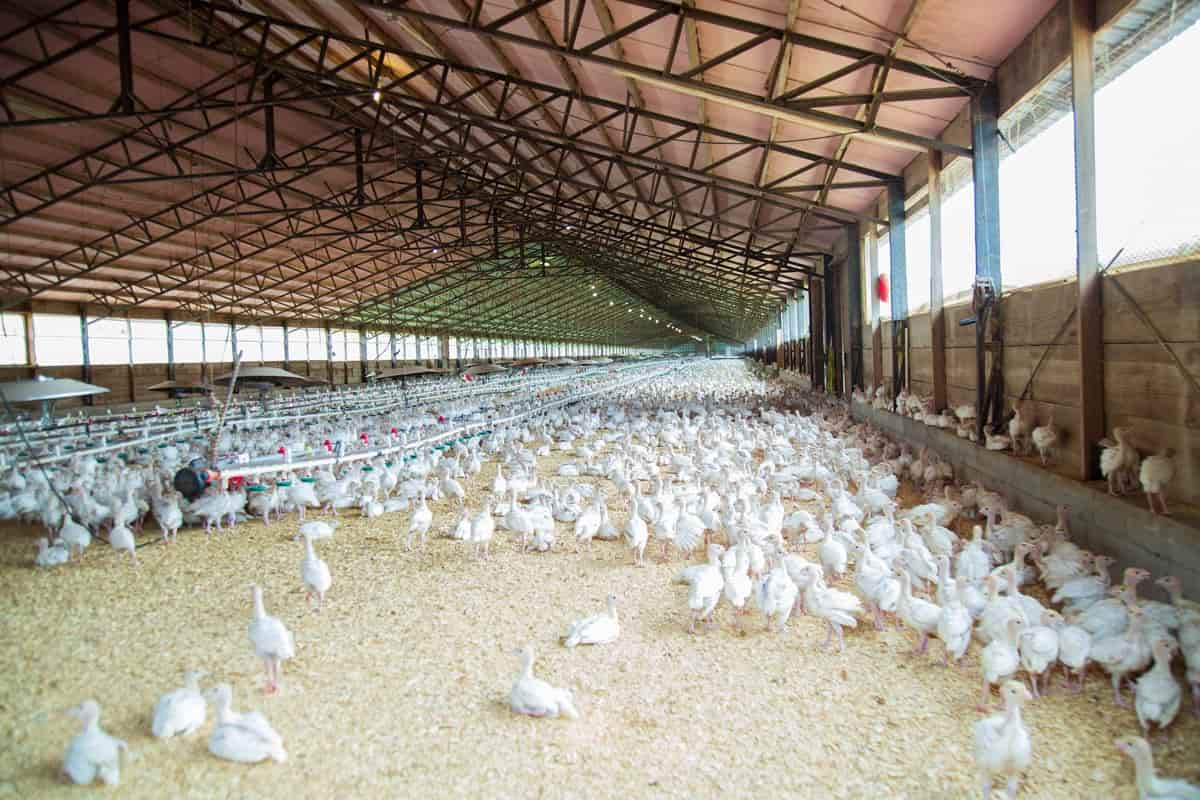
Good husbandry practices for Switzerland poultry farmers
Good husbandry practices are key to successful poultry farming in Switzerland. Some basic tips for Swiss poultry farmers include:
- Ensuring good ventilation and air circulation in the poultry shed
- Keeping the floor clean and dry
- Providing clean water at all times
- Feeding the birds by using a balanced diet
Poultry breeds available in Switzerland
There are many poultry breeds available in Switzerland, each with unique characteristics. The most popular breeds include the following:
- Chickens: There are many different chicken breeds available in Switzerland, each with its unique appearance and personality. Some of the most popular chicken breeds include the Rhode Island Red, Orpington, and Sussex.
- Turkeys: Turkey is another popular poultry breed in Switzerland. There are many different turkeys breeds available, each with its unique appearance and personality. Some popular turkey breeds include the Bronze, White, and Black Turk.
- Ducks: Duck is another poultry breed that is popular in Switzerland. Many different duck breeds are available, each with its unique appearance and personality. Some popular duck breeds include the Pekin, Muscovy, and Rouen.
Poultry farming areas in Switzerland
Poultry egg farming in Switzerland is a highly efficient and modern industry. The production areas are located in the cantons of Lucerne, Zurich, Bern, and Aargau. Most Swiss poultry farms are located in rural areas, away from major urban centers. This allows farmers access to open land to build spacious chicken coops and allow their birds to roam freely. It also helps to keep costs down as land in rural areas is typically less expensive than in urban areas. Switzerland’s main poultry farming areas are in the cantons of Bern, Vaud, Zurich, and Aargau.
In case you missed it: Raising Kadaknath Chickens (Black Chicken) in India: Check How this Guide Helps Profitable Kadaknath Poultry Farming from Scratch
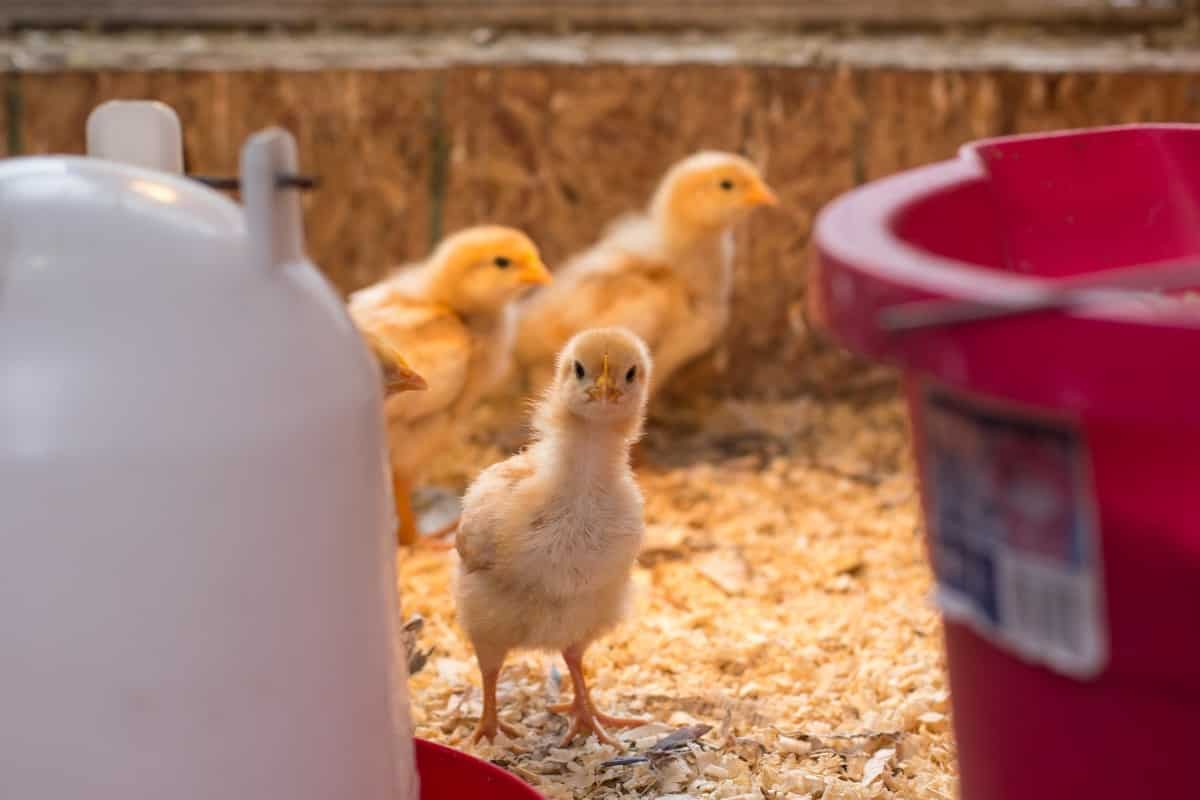
Layer farming business in Switzerland
- A high level of production efficiency and strict animal welfare standards characterizes the Swiss poultry egg industry. Swiss farmers use state-of-the-art technologies and husbandry practices to produce high-quality eggs. In addition, Swiss law requires that all poultry farms adhere to strict animal welfare standards.
- The cost of producing eggs in Switzerland is relatively high. However, this higher cost is offset by the fact that Swiss eggs are among the highest-quality eggs in the world. In addition, Swiss eggs are prized for their nutritional value, taste, and texture. Consequently, they command premium prices on the international market.
Tips on raising poultry in Switzerland
- Choose the right breed of chicken for your needs – There are many different breeds of chicken, each with its strengths and weaknesses. For example, some breeds are better suited for egg production, while others are better for meat production. Do your research to find the right breed of chicken for your needs.
- Build or buy a good quality chicken coop – Your chickens need a safe place to stay from predators and weather extremes. A well-built chicken coop will provide your chickens with shelter and security and help them to stay healthy and productive.
- Provide your chickens with a good diet – Chickens need a balanced diet of grains, protein, greens, and vitamins to stay healthy and produce eggs or meat effectively. You can either grow your food for your chickens or purchase commercial chicken feed from a local supplier.
- Keep your chickens healthy – Regular check-ups by a qualified veterinarian can help prevent problems before they start and address any health issues that arise quickly and effectively. Vaccinations can also help to keep your flock healthy by protecting them against common diseases.
Backyard chicken farming in Switzerland
There are many reasons why Swiss farmers choose to raise backyard chickens. One reason is that chickens are well-suited to the climate and terrain of Switzerland. Chickens also have a relatively short lifespan, so that they can be raised and slaughtered more quickly than other types of livestock.
Another reason for the popularity of backyard chicken farming in Switzerland is that it allows farmers to produce eggs and meat without relying on imports. In addition, Swiss consumers are increasingly interested in buying local food production, and backyard chicken farming provides a way for farmers to meet this demand. Finally, raising chickens can be a fun and rewarding experience for farmers and their families.
If you’re thinking about starting your backyard chicken farm in Switzerland, there are some key points you need to know. Firstly, you’ll need to obtain a permit from your canton’s agricultural department. Next, you’ll need to purchase chicks from a reputable hatchery or breeder. Finally, you’ll need to build or purchase a coop and chicken run that meets all the requirements. With some planning and preparation, backyard chicken farming can be a great way to produce healthy, local food for your family while also having some fun.
Requirements for poultry farming in Switzerland
- To start a poultry farm in Switzerland, several requirements must be met. Firstly, the farmer must have a minimum of 2 hectares of land available for the farm. Furthermore, the land must be located where local zoning regulations permit poultry farming.
- Second, the farmer must have a minimum of 4,000 m2 (0.4 hectares or 1 acre) of pasture for the chickens. The pasture must be fenced and have access to water.
- Third, the farmer must have a minimum of 800 m2 (0.08 hectares or 0.2 acres) indoor space for the chickens. The indoor space must be well-ventilated and have access to natural light.
- Fourth, the farmer must have a minimum of 10,000 Swiss francs in capital available to invest in the poultry farm.
- Finally, the farmer must obtain a permit from the cantonal authorities before starting construction on the farm.
In case you missed it: Poultry Farming in Nepal: How to Start, A Step-By-Step Guide for Beginners
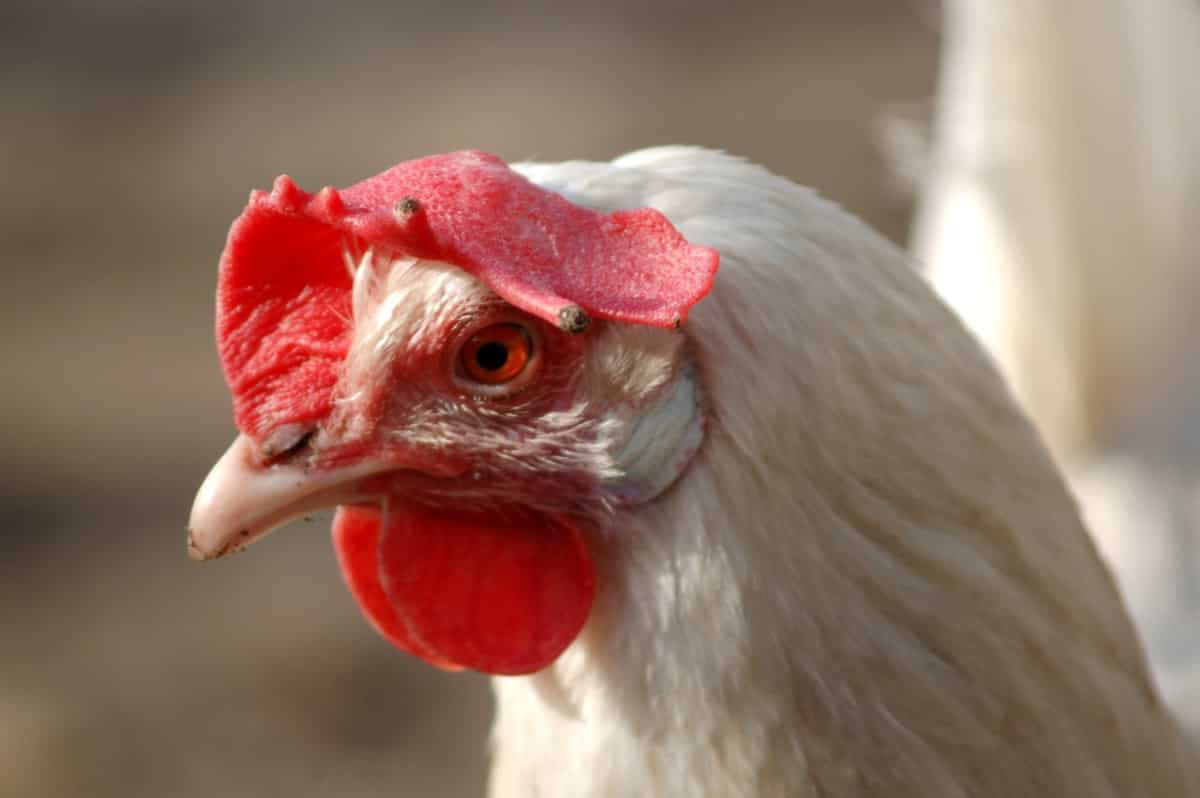
Small-scale poultry farming in Switzerland
Small-scale poultry farming is a popular way to produce meat and eggs in Switzerland. There are many reasons for this: the climate is well suited to chicken production, the cost of land and feed is relatively low, and small-scale farmers can sell their products directly to consumers. Poultry farms in Switzerland are typically family operations, with flocks of between 200 and 2,000 birds. The most common type of poultry farming in Switzerland is chicken, although ducks, geese, and turkeys are also raised.
The different types of poultry farms in Switzerland
Poultry farms in Switzerland come in a variety of sizes. Some are large commercial operations, while others are small family-run businesses. There are also several organic and free-range poultry farms in Switzerland.
- Large commercial poultry farms: These typically have a large number of chickens and produce a significant number of eggs and meat for the Swiss market. Commercial poultry farms are typically highly mechanized and use intensive production methods.
- Small family-run poultry farms: These smaller operations typically have a few hundred chickens and focus on producing eggs for the local market. Family-run poultry farms are often less intensively managed than their commercial counterparts and may use more traditional production methods.
- Organic poultry farms: These farms adhere to strict organic standards set by Swiss law. For example, organic chicken farmers must use certified organic feed, provide their birds with access to the outdoors, and follow other guidelines set by the Swiss government. Many organic chicken farmers also sell their eggs directly to consumers through farmer’s markets or online retailers.
- Free-range poultry farms: Free-range chicken farmers allow their birds to roam freely outdoors, giving them access to grassy areas where they can forage for food. Free-range chicken farming is a more humane way to raise chickens, but it can also be more labor-intensive than other methods.
Poultry farming loans and subsidies in Switzerland
The Swiss government provides financial support to poultry farmers through various programs. These programs include subsidies for infrastructure improvements, research and development projects, and marketing initiatives. Swiss law requires that all poultry farms meet certain animal welfare, food safety, and environmental protection standards. For example, poultry farmers must provide their bird’s access to clean water and fresh air, adequate space to move around, and a healthy diet.
In case you missed it: Equipment Needed for Poultry Farming: Tools, and PDF
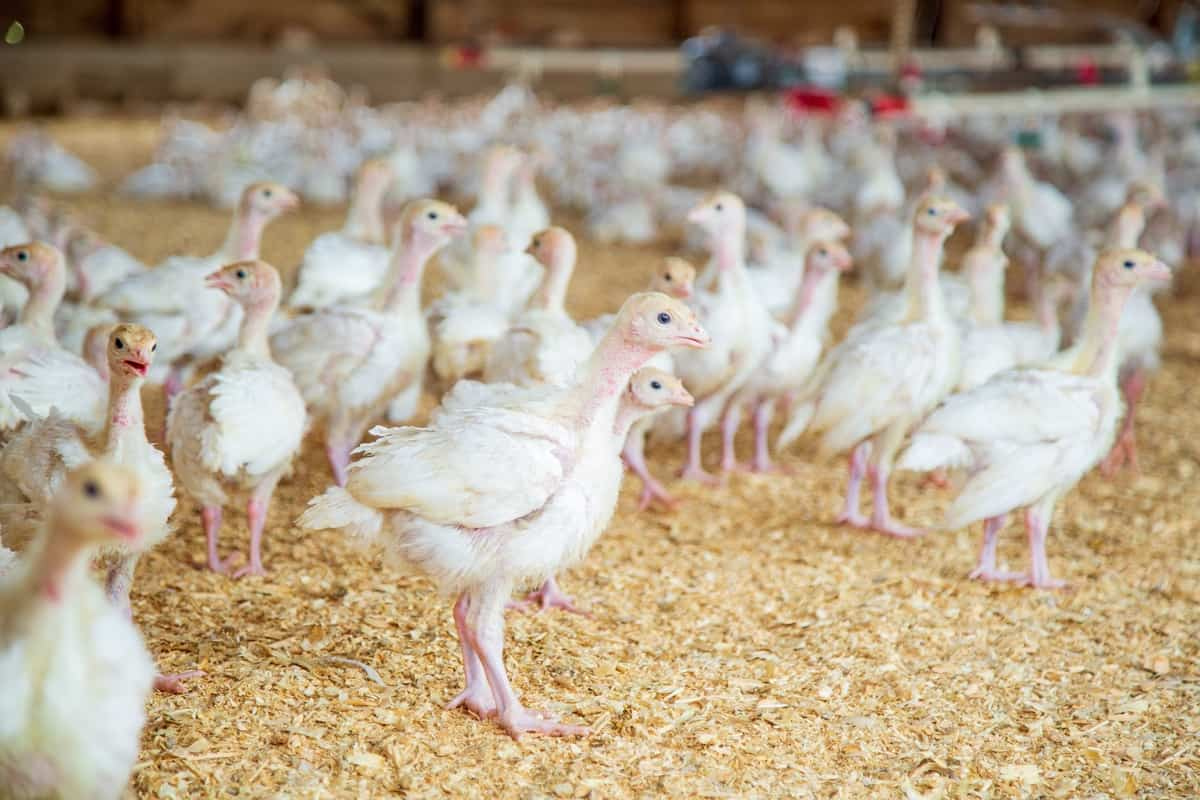
Birds must also be protected from predators and disease. The Swiss government offers a variety of loans and subsidies to help farmers get started in the poultry farming business. The interest rate on these loans is very low, and the repayment period is up to 10 years. There is also a subsidy available for the purchase of new chicken coops.
Poultry farm problems in Switzerland
- Disease: Various diseases can affect poultry, such as avian influenza, Newcastle disease, and Salmonella. These diseases can lead to high mortality rates in flocks and have a significant financial impact on farmers.
- Predators: predators such as foxes, badgers, and weasels can be a major problem for poultry farmers, attacking and killing chickens and other birds. This can lead to significant financial losses for farmers.
- Weather: extreme weather conditions such as heavy snowfall or prolonged periods of cold weather can adversely affect poultry, leading to lower egg production or even death. This can be a major financial blow to farmers.
- Competition: There is intense competition among poultry farmers in Switzerland, which leads to lower profit margins. This intensifies the effects of the other problems farmers face and makes it difficult for them to stay in business.
Poultry farming challenges in Switzerland
Poultry farming in Switzerland can be challenging due to the high cost of land, lack of infrastructure, and limited feed availability. In addition, Swiss poultry farmers must comply with strict animal welfare and food safety regulations. As a result, poultry farming is often considered a niche market in Switzerland.
Conclusion
Poultry farming is an important agricultural sector in Switzerland. The country has a long tradition of poultry farming, and today, Swiss farmers produce high-quality poultry products sold worldwide. A high animal welfare and environmental protection level characterize the Swiss poultry industry. Poultry farms in Switzerland are also generally well-regulated and have high animal welfare standards. This means chickens are treated humanely and not kept in cramped, dirty conditions. Swiss law also requires that all poultry farms be sanitary and disease-free.
- How to Make Houseplants Bushy: Effective Tips and Ideas
- Innovative Strategies for Boosting Coconut Pollination and Yield
- Pollination Strategies for Maximum Pumpkin Yield
- The Complete Guide to Chicken Fattening: Strategies for Maximum Growth
- Natural Solutions for Tulip Problems: 100% Effective Remedies for Leaf and Bulb-Related Issues
- Revolutionizing Citrus Preservation: Towards a Healthier, Greener Future
- Natural Solutions for Peony Leaf and Flower Problems: 100% Effective Remedies
- Maximizing Profits with Avocado Contract Farming in India: A Comprehensive Guide
- Natural Solutions for Hydrangea Problems: 100% Effective Remedies for Leaf and Flowers
- The Ultimate Guide to Choosing the Perfect Foliage Friend: Bringing Life Indoors
- From Sunlight to Sustainability: 15 Ways to Use Solar Technology in Agriculture
- The Ultimate Guide to Dong Tao Chicken: Exploring from History to Raising
- The Eco-Friendly Makeover: How to Convert Your Unused Swimming Pool into a Fish Pond
- Mastering the Art of Delaware Chicken Farming: Essentials for Healthy Backyard Flocks
- 20 Best Homemade Fertilizers for Money Plant: DIY Recipes and Application Methods
- How to Craft a Comprehensive Free-Range Chicken Farming Business Plan
- Brighten Your Flock: Raising Easter Egger Chickens for Beauty and Bounty
- How to Optimize Your Poultry Egg Farm Business Plan with These Strategies
- Subsidy for Spirulina Cultivation: How Indian Government Schemes Encouraging Spirulina Farmers
- Ultimate Guide to Raising Dominique Chickens: Breeding, Feeding, Egg-Production, and Care
- Mastering the Art of Raising Jersey Giant Chickens: Care, Feeding, and More
- Ultimate Guide to Raising Legbar Chickens: Breeding, Farming Practices, Diet, Egg-Production
- How to Raise Welsummer Chickens: A Comprehensive Guide for Beginners
- How to Protect Indoor Plants in Winter: A Comprehensive Guide
- Ultimate Guide to Grow Bag Gardening: Tips, Tricks, and Planting Ideas for Urban Gardeners
- Guide to Lotus Cultivation: How to Propagate, Plant, Grow, Care, Cost, and Profit
- Agriculture Drone Subsidy Scheme: Government Kisan Subsidy, License, and How to Apply Online
- Ultimate Guide to Raising Araucana Chickens: Breed Profile, Farming Economics, Diet, and Care
- Bringing Hydroponics to Classroom: Importance, Benefits of Learning for School Students
- Ultimate Guide to Raising Polish Chickens: Breed Profile, Farming Economics, Diet, and Care
- Ultimate Guide to Raising Australorp Chickens: Profile, Farming Economics, Egg Production, Diet, and Care
- Silkie Chicken Farming: Raising Practices, Varieties, Egg Production, Diet, and Care
- Sussex Chicken Farming: Raising Practices, Varieties, Egg Production, Diet and Care
- Homemade Feed Formulations for Livestock: Discover Cost-effective Starter to Finisher Feed Recipes
- 20 Best Pig Weight Gain Supplements: Top Swine Weight Gain Formulas
- Ultimate Guide to Elderberry Farming: Propagation, Planting, Yield, Cost, and Profit